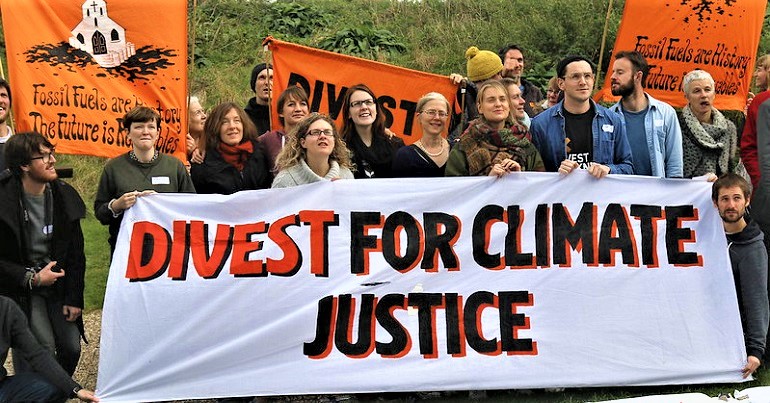University of Central Lancashire becomes 97th UK university to divest from fossil fuels

Another big moment for the fossil fuel divestment movement. The University of Central Lancashire (UCLan) has announced it is fully divesting from the fossil fuel industry, becoming the 97th UK university to make a divestment commitment. The announcement comes as part of the university’s strategy to prioritise sustainability in the run up to its 200th anniversary in 2028.
UCLan has divested following an update to its ethical investment policy to exclude all fossil fuel companies. In doing so, UCLan has become the seventh UK university to fully divest in 2022. UCLan is also the third university to make a commitment to divest, making Edge Hill University the only higher education institution in the county to yet do so.
George Charles, Chief Finance Officer at UClan, said,
Sustaining and enhancing the wellbeing of people, places and the planet are amongst the most important challenges we face today. We have made these key aspects of our current strategic plan as we know our students, staff and stakeholders are concerned about the social, environmental and sustainability impact we have on society. We have not invested in fossil fuels for the last few years but officially announcing our divestment from fossil fuel companies is an important step.
The student wing of the UK divestment movement is coordinated by People & Planet. Laura Clayson, Climate Campaigns Manager at People & Planet, said of UCLan’s decision to divest, “It is incredible to see the collective power of student organisers come through in the University of Central Lancashire’s Fossil Free commitment. The fossil fuel industry is driving the climate crisis and frontline and Indigenous communities are continually forced to resist its daily destructive operations on their lands.
Similar comments have been made by Nathan James, Ethics & Environment Representative and Chair of the Environmental Society at UCLan. James said, “I’m absolutely delighted the University has updated its ethical investment policy, and confirmed it will no longer invest in fossil fuels. This is a step in the much needed direction towards mitigating climate change effects. As students, we are the future, and we deserve a bright and successful one.”
Over 1,500 institutions across the globe have now made public commitments to cut their financial ties to the fossil fuel industry. As a result, an estimated $40 trillion of investments have been withdrawn from the sector. Of that total, £15 billion has come from the UK higher education sector.
Such commitments have been made after consistent and sustained public pressure from grassroots activists and campaign groups. When student activist network People & Planet launched the UK wing of the Fossil Free campaign in universities in 2013, no higher education institutions in the UK had committed to divest from the fossil fuel industry. But after the University of Glasgow became the first to divest in 2014, dozens have followed suit. Now, Over 60% of UK universities have divested from fossil fuels companies in acknowledgement of their duty to consider social and environmental impact in addition to profit when making investments.
In light of the suite of divestment commitments from universities, student campaigners are increasingly calling on them to also ensure that careers services exclude oil, gas and mining companies from recruitment opportunities. This effort is conducted under the banner of Fossil Free Careers, and has been supported by both the National Union of Students and the University and College Union.
James reiterated this demand, saying, “We now need to transition to a low-carbon society in order to urgently address the climate crisis. Therefore, looking forward, we will build on this announcement’s success and lobby UCLan to implement an Ethical Careers Policy to exclude oil, gas and mining industries from campus recruitment activities.”
Image credit: Fossil Free Greater Manchester – Creative Commons
PS. We hope you enjoyed this article. Bright Green has got big plans for the future to publish many more articles like this. You can help make that happen. Please donate to Bright Green now.




Helpful guidance for students who wish to pursue a career in science can be sought from Scientists for Global Responsibility
Thanks! Please could you correct “The University of Central Lancaster” to Lancashire in the opening paragraph.